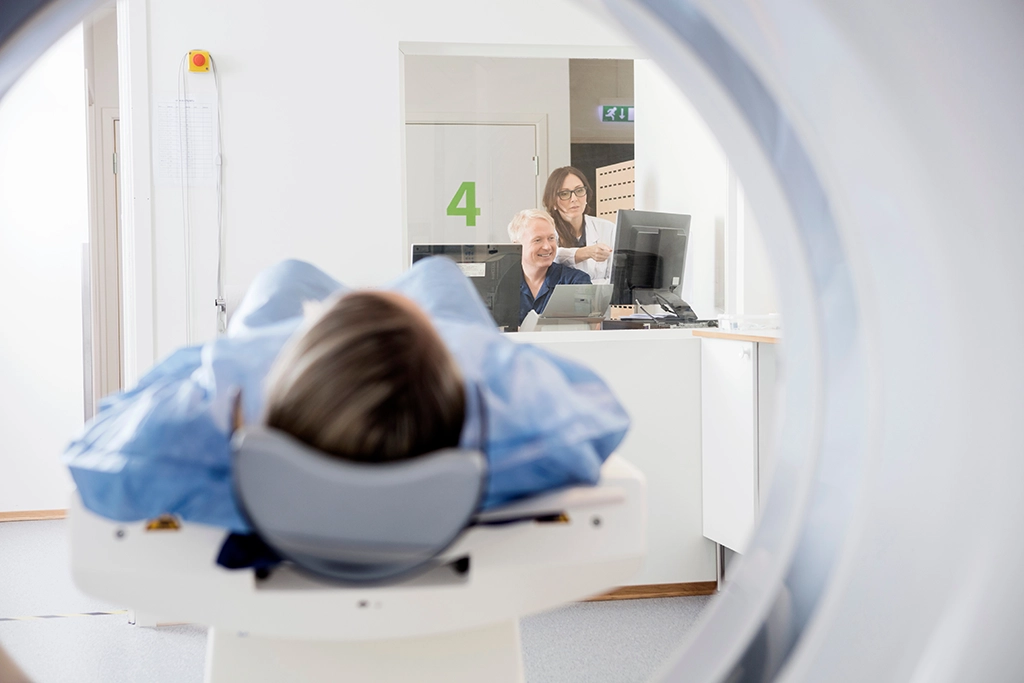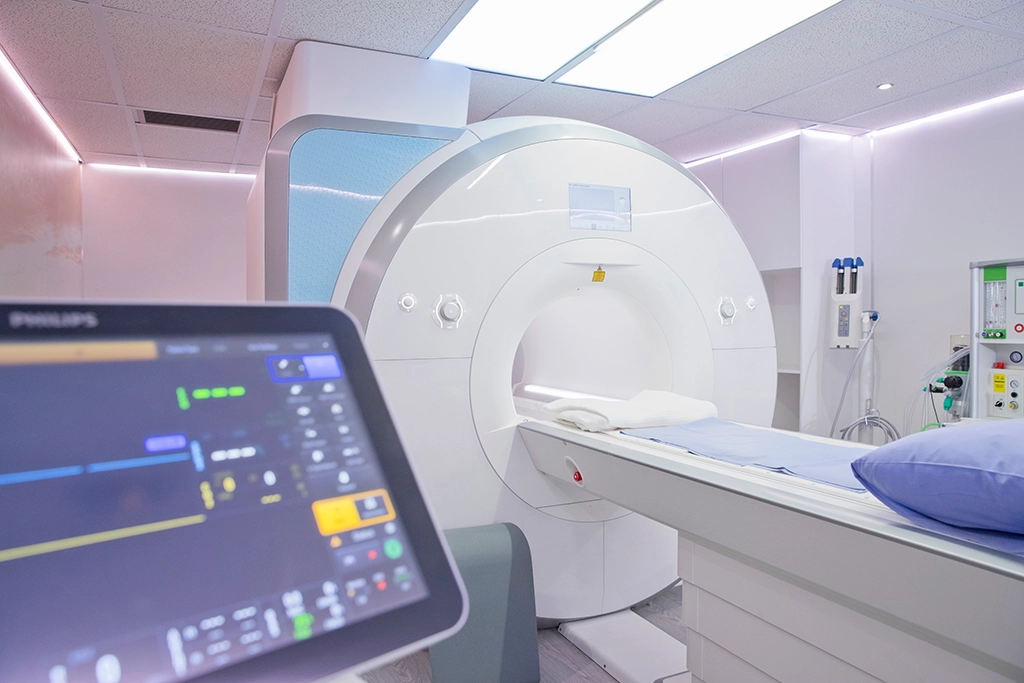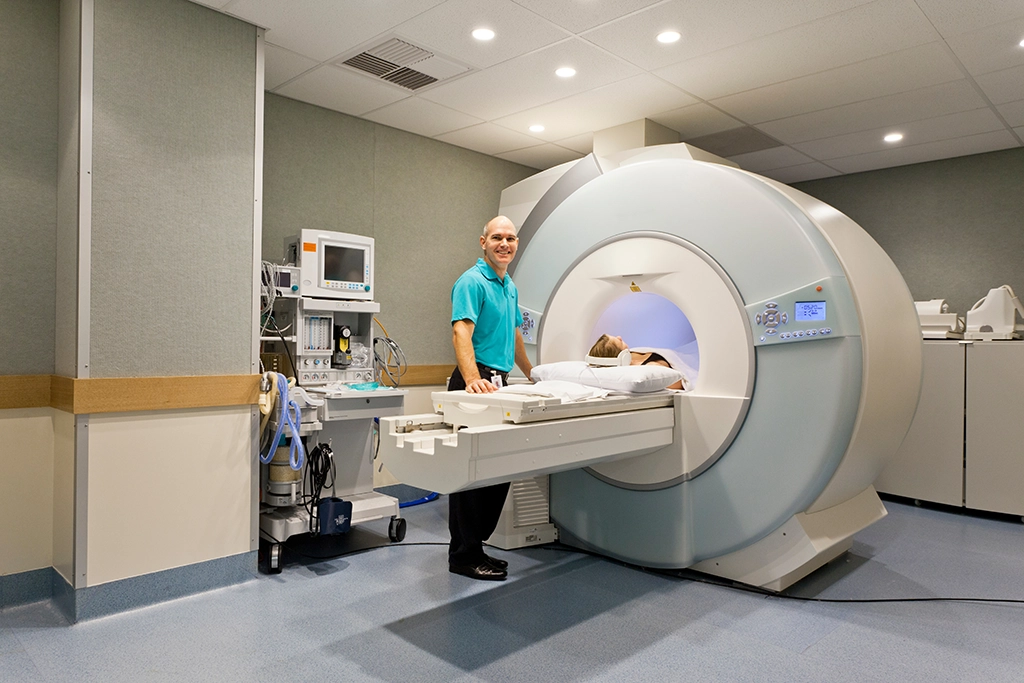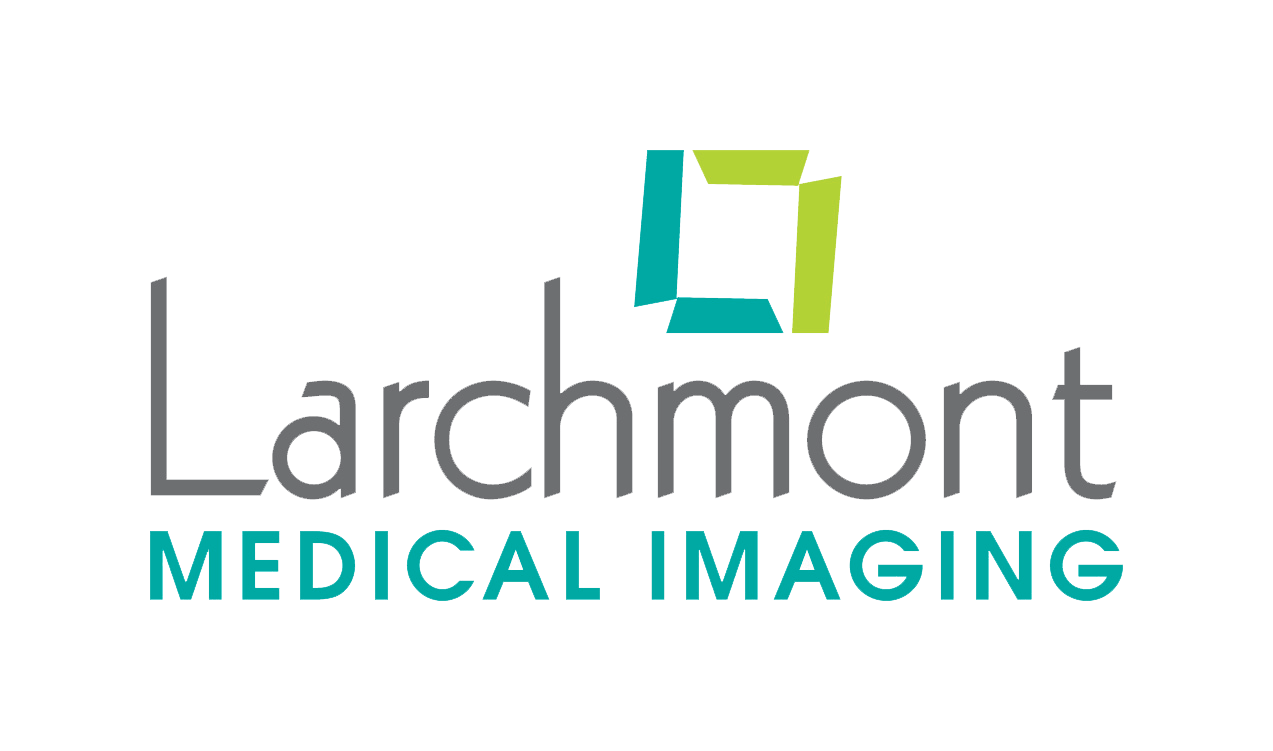Magnetic resonance imaging (MRI) is an imaging study that utilizes magnetic fields to capture views of soft tissue and fluids in the body. These images provide your physician and you with the clarity to help make an accurate diagnosis. MRIs can help diagnose a wide range of medical conditions. Larchmont Imaging offers innovative MRI technology to make sure high-quality images are created without decreasing patient comfort.
Magnetic Resonance Imaging (MRI)


What Are The Different Types of MRIs?
Larchmont Imaging offers diagnostic and advanced MRI imaging studies to uncover key insights about your health. Here are the most commonly ordered MRI studies:
- Abdominal MRIs – Assess abdominal and pelvic abnormalities.
- Brain MRIs – Assess neurological conditions and detect abnormalities in the brain.
- Breast MRIs – Measures the efficacy of breast cancer treatments and screen high-risk patients.
- Cardiac MRIs – Evaluates heart function and viability.
- Orthopedic MRIs – Identifies stress fractures, torn ligaments, damaged tendons, and worn cartilage.
- Spine MRIs – Identifies herniated discs and spinal conditions.
Our MRI Imaging Locations
Larchmont Imaging offers MRI imaging services across 4 of our office locations. Each one of our office locations offers same-day and next-day appointment options with many offices offering evening and weekend hours to meet your busy schedule. Get the compassionate and comprehensive care you need fast.

MRI Frequently Asked Questions
Our team of experienced technologists at Larchmont Imaging will provide specific guidelines regarding your appointment. Here are the important guidelines to follow:
- Please arrive 15 minutes prior to your appointment.
- Wear comfortable, loose clothing that doesn’t contain any metal such as belts, jewelry, buttons, or zippers.
- Avoid eating or drinking in the hours prior to your MRI. Based on the specific details for your exam, our staff will provide specific time periods to restrict eating or drinking.
- If you have metal artifacts in your body including cardiac devices or hearing aids, inform our staff or your doctor.
An MRI scan is a non-invasive medical imaging study that doesn’t expose you to radiation. However, an MRI machine uses a magnetic field, which may prevent certain individuals with metal implants from undergoing an MRI.
If you are an individual who has a metal implant such as a pacemaker, a vagus nerve stimulator, an insulin pump, a cochlear implant, or a deep brain stimulator, please consult with your referring physician before scheduling an MRI.
In some cases, these metal devices may not be compatible with our MRIs, and another medical imaging study will be recommended.
Larchmont Imaging has advanced protocols and sequences that can accommodate patients with metal artifacts such as pacemakers and artificial spinal stimulators. Please consult with your referring physician to determine if an MRI works with your type of pacemaker and if it is right for you.
During an MRI scan, it is strongly encouraged to remain as still as possible. Any movement during the MRI could decrease or skew the quality of the images.
Some patients who are concerned about claustrophobia may be worried about an MRI scan. At Larchmont Imaging, our MRI imaging centers offer wide-bore MRIs equipped with fast scan technology. Wide-bore MRIs allow for “feet first” scanning and provide an extra 12 inches of space. Our wide-bore MRIs have fast scan technology equipped that reduces scan times by up to 30% compared to traditional MRIs.
At select locations, an open MRI is available to greatly improve patient comfort. Similar to a traditional MRI, an open MRI has no side panels to add extra space and room.
If you’d prefer any mild sedation methods, please speak with your referring provider to see what works best for you.
Prior to the start of your MRI scan, one of our experienced MRI technologists will go over your medical history with you. The technologist will lead you to a table, which will slide into the MRI machine, a cylinder-shaped tube surrounded by a magnet. You must remain still on the table for the duration of the scan.
On average, an MRI scan takes between 15 – 90 minutes to complete. Afterward, you will be able to leave our office and continue with your daily routine after the scan is completed.
Once your MRI scan is completed, one of our subspecialized radiologists will analyze the results and develop a detailed report for your referring doctor. Your doctor will receive the report within 48 hours and follow up with you to go over the results.
Larchmont Imaging is in-network with 99% of insurance carriers. Please contact your insurance carrier to inquire about Larchmont’s in-network status. Some insurance companies may try to direct you to their preferred radiology center. As the patient, you have the right to choose if you would like your study performed at Larchmont.
